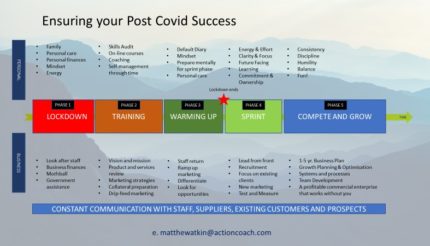In recent years, artificial intelligence (AI) has transitioned from being a high-tech buzzword to a practical tool that businesses of all sizes can leverage to enhance productivity, reduce costs, and improve customer experiences. Despite this, a recent survey of businesses in the U.S. found that only 4.5% of businesses make use of AI as an integrated part of their business process. For small businesses, AI can seem daunting due to concerns about cost, technical know-how, and the complexity of implementation. Let’s explode that myth surrounding AI.
Advancements in AI technology have made, and continue to make, these tools more accessible than ever. Below, we’ll explore some practical applications of AI for small businesses, along with insights into how easy (or difficult) these tools are to implement and use.
Practical Applications of AI in Small Businesses
Customer Service Automation
One of the most popular and accessible uses of AI in small businesses is through customer service automation. AI-powered chatbots, for example, can handle common inquiries 24/7, providing quick responses to customers while freeing up human employees to focus on more complex tasks. Tools like Zendesk or HubSpot provide easy-to-install AI chatbots that integrate with existing systems.
Many chatbot services offer plug-and-play functionality with existing websites or e-commerce platforms. This makes the installation process very straightforward, often requiring only basic technical knowledge.
These systems typically come with user-friendly dashboards that allow business owners to customise responses without any coding skills.
Marketing and Sales Automation
AI can help automate repetitive marketing tasks, such as email campaigns, social media posts, and targeted advertising. For example, AI-driven platforms like Mailchimp and Hootsuite use machine learning algorithms to predict customer behaviour and optimise campaign performance.
Most AI marketing tools are cloud-based and require only a subscription and integration with your existing CRM or email marketing platform. They usually come with step-by-step guides for installation.
Once set up, these tools are designed for simplicity, often requiring minimal intervention after initial configurations. Business owners can monitor performance and adjust settings from a user-friendly interface.
Data Analytics and Insights
Small businesses often struggle with data overload but lack the resources to hire a full-time data analyst. AI-powered analytics tools like Google Analytics, Tableau, or Microsoft Power BI can analyse large amounts of data, providing actionable insights for better decision-making.
Tools like Google Analytics are easy to install, requiring just a snippet of code to be added to your website. More advanced analytics platforms may require some initial setup, but many offer support services or consultants to assist.
While the dashboards are generally intuitive, getting the most out of these platforms requires some learning, particularly in understanding how to interpret the data effectively. However, many platforms offer tutorials and ongoing support.
Inventory Management
AI can streamline inventory management by predicting demand, automating reordering, and preventing overstock or stockouts. Tools like TradeGecko and Ordoro use AI to optimise stock levels based on sales trends and seasonality.
Inventory management tools are generally easy to install, especially if you’re already using a cloud-based system. They integrate smoothly with e-commerce platforms, point-of-sale (POS) systems, and accounting software.
The interface is often straightforward, though mastering the AI-driven forecasting features may take some practice. Most tools provide a range of support options, including tutorials, customer support, and community forums.
Hiring and Recruitment
Small businesses can benefit from AI-driven recruitment platforms like HireVue or Breezy HR, which use algorithms to screen resumes, schedule interviews, and even assess candidate fit based on video interviews.
Most AI hiring tools are cloud-based, requiring minimal setup. Integration with existing HR systems is generally seamless, with plenty of documentation to guide the process.
These tools are typically user-friendly and automated, reducing the time and effort needed to sift through resumes manually. However, the AI-based assessments may require some initial customisation to fit your business’s needs.
The Challenges of AI Adoption
While the potential benefits of AI are significant, small businesses may face some challenges during adoption:
Cost: Though AI has become more affordable, high-end AI tools can still represent a significant investment, especially for very small businesses.
Learning Curve: While many AI tools are designed to be user-friendly, they often require a learning period before business owners and employees can fully utilise their features.
Customisation: Off-the-shelf AI solutions may not perfectly fit every business’s unique needs, and customising these tools can require technical expertise or third-party help.
Conclusion
AI is no longer just for large enterprises; small businesses can now access powerful AI tools to automate tasks, gain insights, and improve operations. Many AI solutions are designed to be user-friendly and easy to install, though some come with training or customisation challenges. Overall, with the right strategy and approach, AI can be a game-changer for small businesses, allowing them to compete more effectively in an increasingly digital world.




